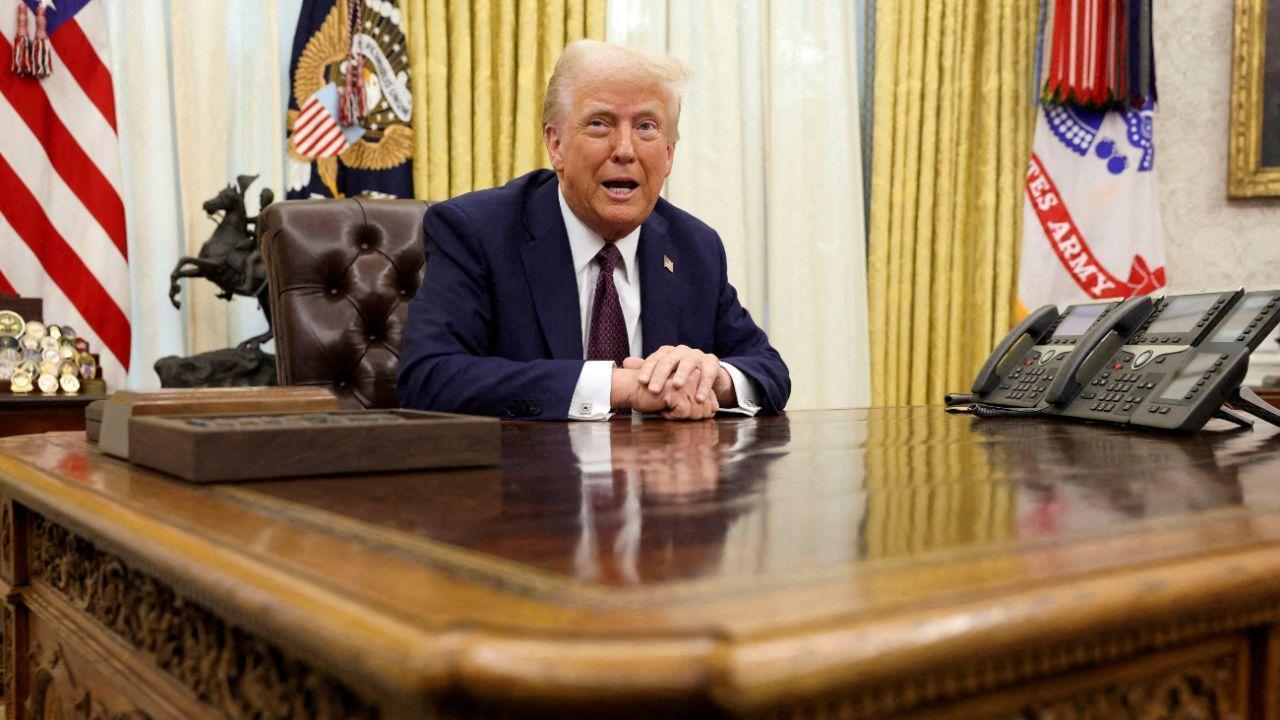
Post by : Priya
Photo:Reuters
In a move that has captured global attention, five African leaders are preparing to meet with former U.S. President Donald Trump at the White House this week. This high-profile diplomatic meeting marks a significant step in strengthening the relationship between the United States and key African nations.
The visiting presidents—representing Nigeria, Kenya, Ghana, Senegal, and Zambia—are expected to hold talks with Trump on issues ranging from trade and investment to regional security, education, and health. While Donald Trump is no longer in office, his ongoing political influence and potential candidacy in the next election make this meeting particularly meaningful.
Who Are the Visiting Leaders?
The five African presidents involved in this historic meeting represent some of the continent’s most influential and fastest-growing nations:
Nigeria: Africa’s most populous country and largest economy. Nigeria plays a central role in regional politics and economic development.
Kenya: A key U.S. ally in East Africa, known for its stability, tech growth, and strategic importance in fighting terrorism.
Ghana: A model of democratic governance in West Africa, with strong cultural and economic ties to the United States.
Senegal: A peaceful democracy and an emerging economy in Francophone West Africa.
Zambia: A southern African country with a growing mining sector and ambitions for industrial development.
These five countries together represent a wide range of Africa’s diversity—in language, culture, economy, and politics.
Why Is the Meeting Happening?
There are several reasons why this meeting is taking place now:
1. Strengthening Bilateral Relations
The U.S. has long been a major player in Africa through aid, investment, and diplomacy. But in recent years, China and Russia have increased their presence on the continent. African leaders are now looking to balance their global partnerships. This meeting offers a way to deepen ties with the United States at a time when global politics are shifting.
2. Growing Influence of Trump
Even after leaving office, Donald Trump remains a major figure in U.S. politics. With the possibility of a 2024 presidential run, African nations want to keep their ties strong with all political sides in Washington. Meeting with Trump sends a message that African leaders are thinking long-term and looking to build relationships beyond just current administrations.
3. Shared Interests
There is growing interest in mutual cooperation on issues such as trade, security, technology, and development. Both African nations and U.S. businesses see opportunities to grow together.
Main Topics of the Meeting
The meeting is expected to cover a range of key issues that matter not just to the leaders involved, but to the people of their countries.
1. Trade and Investment
African leaders are seeking more American investment in areas such as infrastructure, agriculture, technology, and clean energy. The continent offers huge potential for economic growth, but still lacks the capital and infrastructure needed to support development.
The U.S. is seen as a trusted partner, especially in comparison to concerns over debt-trap diplomacy with other global powers. Trump is expected to push for greater market access for U.S. companies and promote American exports to Africa.
2. Security Cooperation
Africa faces serious security threats—from terrorism in the Sahel region to piracy and organized crime. The U.S. has long partnered with African countries in military training and intelligence sharing.
This meeting is likely to include talks about boosting security partnerships and increasing U.S. support for counter-terrorism programs in places like Nigeria and Kenya.
3. Health and Education
U.S.-funded health programs have played a key role in fighting diseases like HIV/AIDS, malaria, and COVID-19 across Africa. African leaders will likely ask for continued support for these programs and more collaboration in building healthcare infrastructure.
Education is another key issue. More scholarships, exchange programs, and support for schools and universities are expected to be on the agenda.
4. Youth and Employment
Africa is home to the world’s youngest population. With millions of young people entering the job market each year, creating employment opportunities is a top priority.
By partnering with the U.S., African leaders hope to bring in new training programs, business investments, and innovation hubs to help create jobs for the youth.
A Diplomatic Message to the World
The meeting sends a strong message—not just to Washington, but to Beijing, Brussels, and Moscow: Africa is not just a passive player in global politics. It is choosing its partners, setting its own terms, and actively engaging with the world.
By visiting the White House and meeting with a high-profile figure like Trump, the five presidents are making it clear that Africa seeks mutual respect, fair trade, and long-term cooperation.
This is not just a photo opportunity. It is a strategic move designed to shape future alliances.
Domestic Reactions in Africa
Nigeria
Many Nigerian business leaders have welcomed the visit, hoping it will lead to more trade deals and investment. Others are more cautious, urging the government to protect national interests and avoid one-sided agreements.
Kenya
Kenyan citizens and the media have praised the visit as a sign of strong diplomacy. There is hope that more American investors will now be interested in Kenya’s tech sector and transport infrastructure.
Ghana
In Ghana, the visit is seen as a way to deepen the country’s already warm ties with the U.S. Officials expect discussions about fairer trade agreements and more educational partnerships.
Senegal
Senegal’s government hopes to gain more support for its ambitious infrastructure projects and social development plans.
Zambia
In Zambia, leaders are pushing for American support to develop mining and clean energy projects. The hope is to create jobs and reduce poverty.
U.S. Business and Policy Perspective
American businesses are increasingly looking toward Africa as a land of opportunity. With over 1.4 billion people, a fast-growing middle class, and vast natural resources, Africa is an emerging market that U.S. companies can no longer ignore.
This meeting is likely to boost interest among American investors, especially in sectors like:
From a policy angle, Trump’s team may view this as a way to lay the foundation for future diplomatic and economic deals if he returns to office. It also fits with Trump’s past focus on deal-making and transactional diplomacy.
How This Meeting Differs from Past Engagements
In previous decades, African leaders mostly engaged with sitting U.S. presidents or State Department officials. This meeting is unique in that it involves a former president with a strong political following and global recognition.
It reflects a shift in how diplomacy works today—where leaders engage with influential figures, not just those currently in power. It also suggests that African leaders are becoming more strategic in managing their relationships with global powers.
What Happens Next?
The outcomes of this meeting will likely unfold over the coming months. Possible results include:
Signing of Memoranda of Understanding (MoUs) for trade and investment
Agreements on security and military cooperation
New educational exchange and scholarship programs
Announcements of U.S. business delegations to Africa
More visits between U.S. and African officials
Much will depend on how both sides follow through on the promises made during the meeting.
Criticisms and Concerns
While many see the visit as positive, some critics have raised concerns:
Will African nations get fair deals, or will they be pressured into agreements that mainly benefit U.S. businesses?
Is Trump the right figure to engage with, given the controversies during his presidency?
Are African voices truly being heard, or is this another example of foreign powers shaping Africa’s future?
These questions are valid and should be openly discussed. But they do not take away from the fact that this is a bold step in global diplomacy.
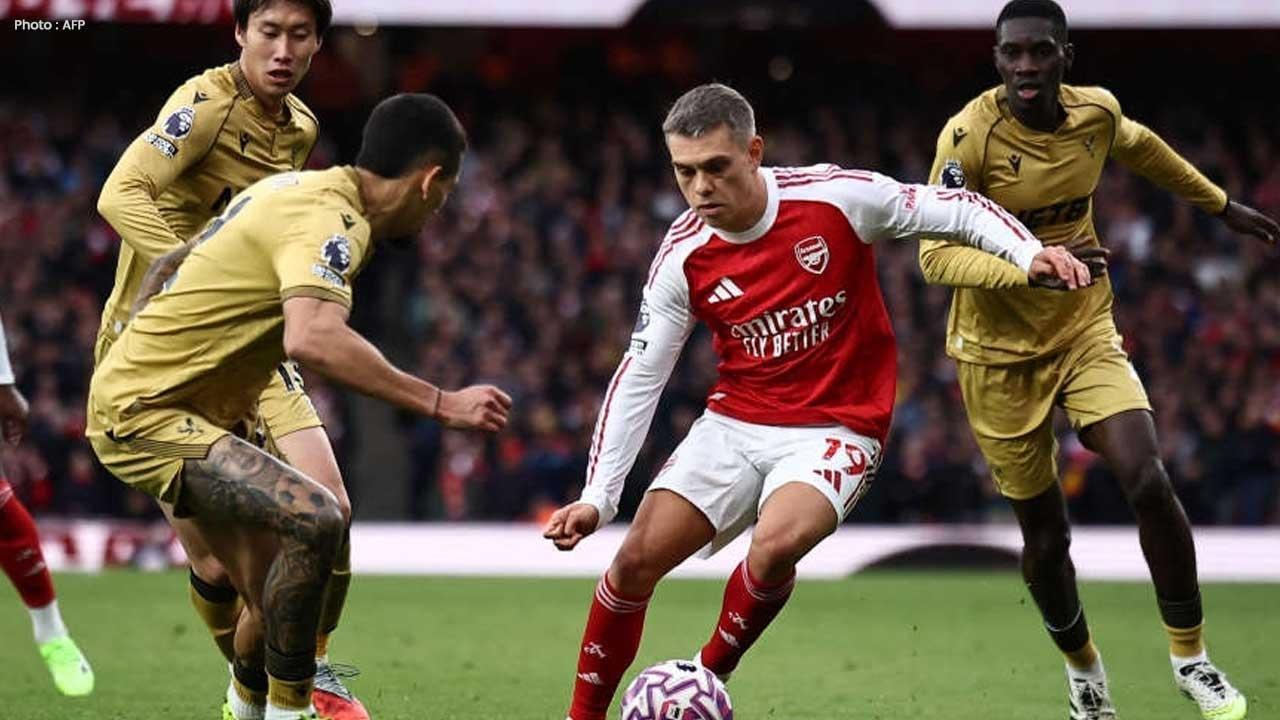


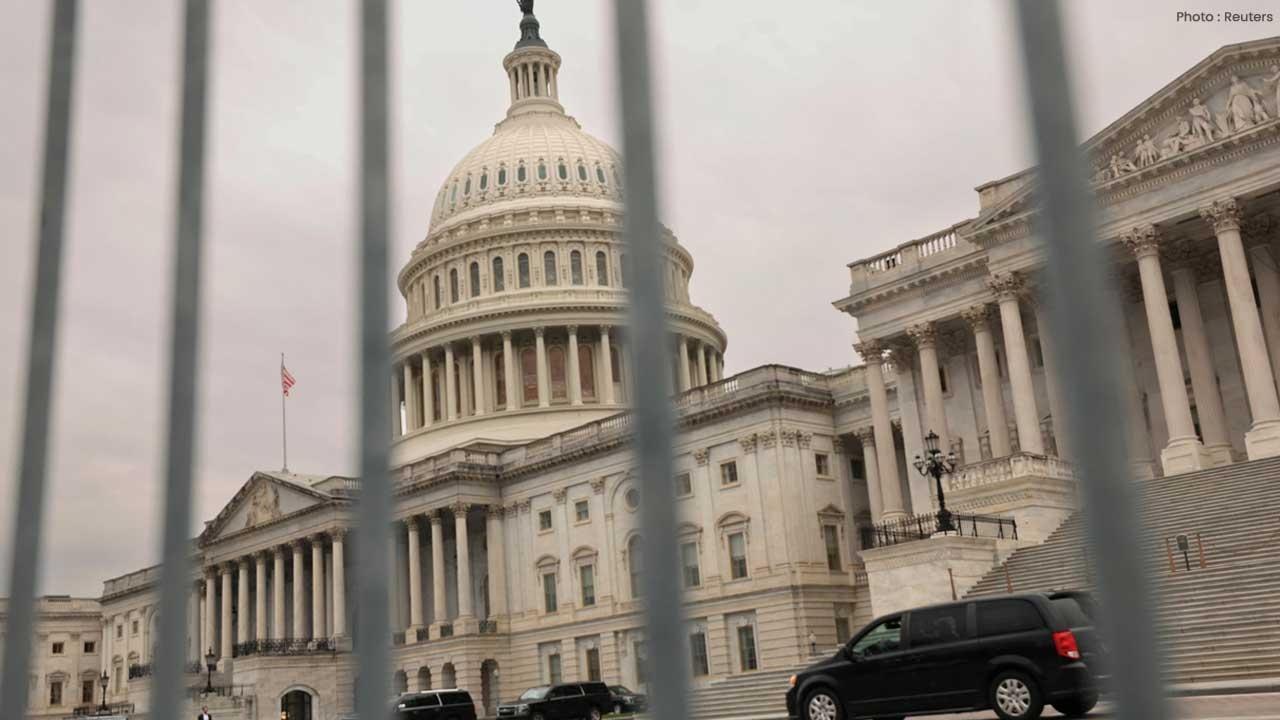

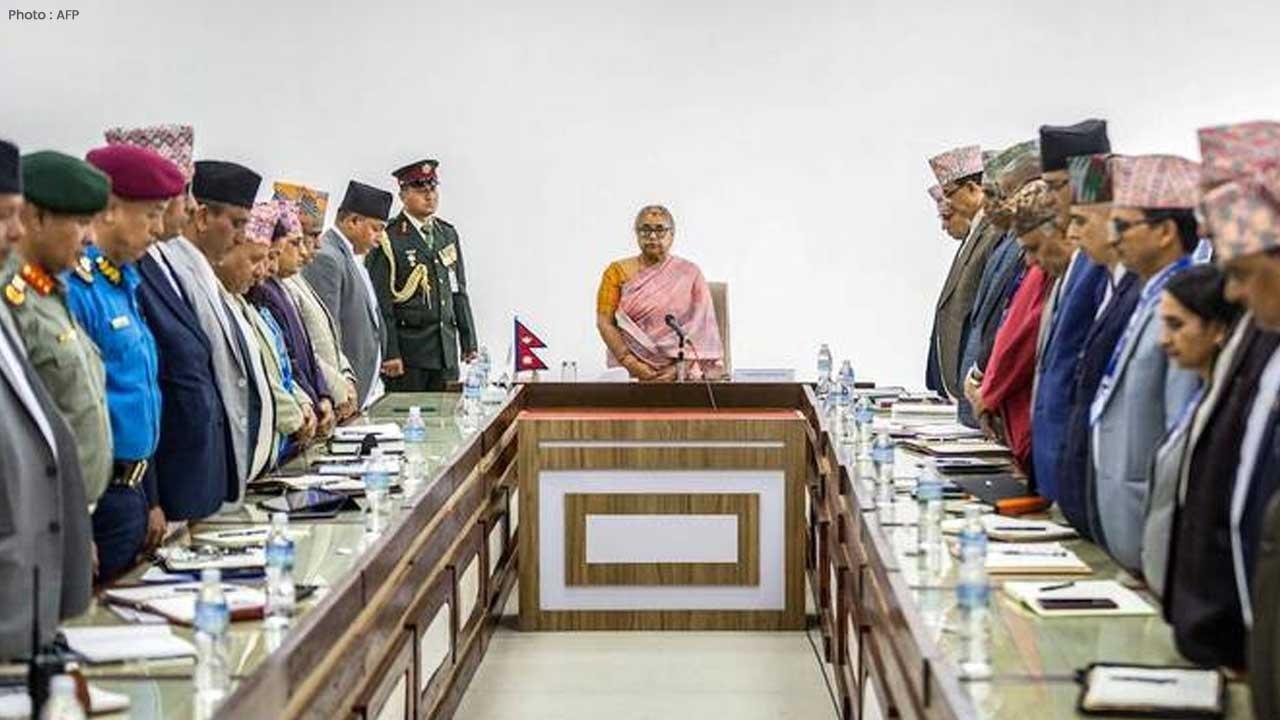



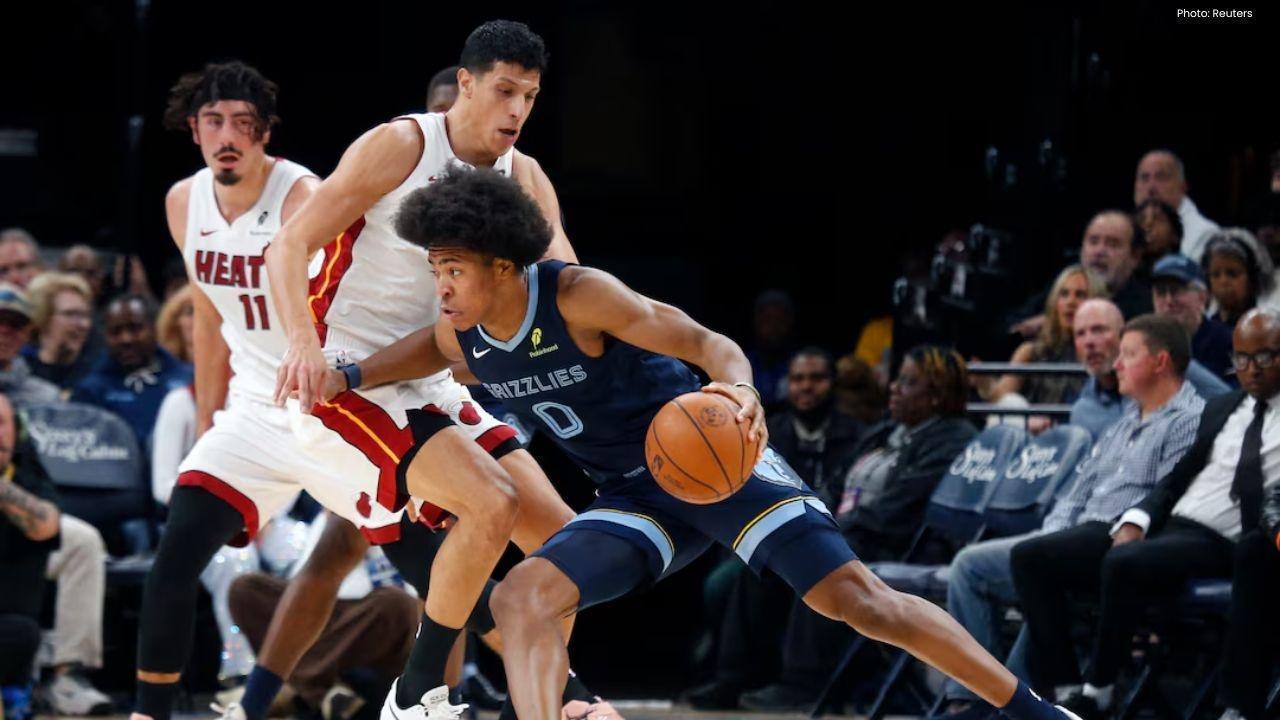
NBA Friday Recap: Powerhouse Wins for Miami, LA, Milwaukee, and Clippers
Miami, LA Lakers, Milwaukee, and Clippers triumphed in a thrilling NBA Friday, showcasing standout p

Doncic Shines with 49 Points in Lakers' 128-110 Victory over Timberwolves
Luka Doncic dazzles with 49 points as the Lakers secure a 128-110 win against the Timberwolves, show

Kings Triumph Over Jazz 105-104 with Last-Minute Sabonis Effort
The Sacramento Kings edged out the Utah Jazz 105-104, with Domantas Sabonis making the decisive shot

Argentina's Friendly Match Against India Delayed, New Date to be Announced
The friendly match between Argentina and India in Kochi has been postponed due to FIFA approval dela

Rohit and Kohli Conclude ODI Journeys in Australia with a Victory
Rohit Sharma and Virat Kohli bid adieu to Australian ODIs with a final win, forming a 168-run partne

George Russell's Wrestling Mask Antics at Mexican Grand Prix
George Russell donned a wrestling mask to enjoy the Mexican Grand Prix from the stands, providing a